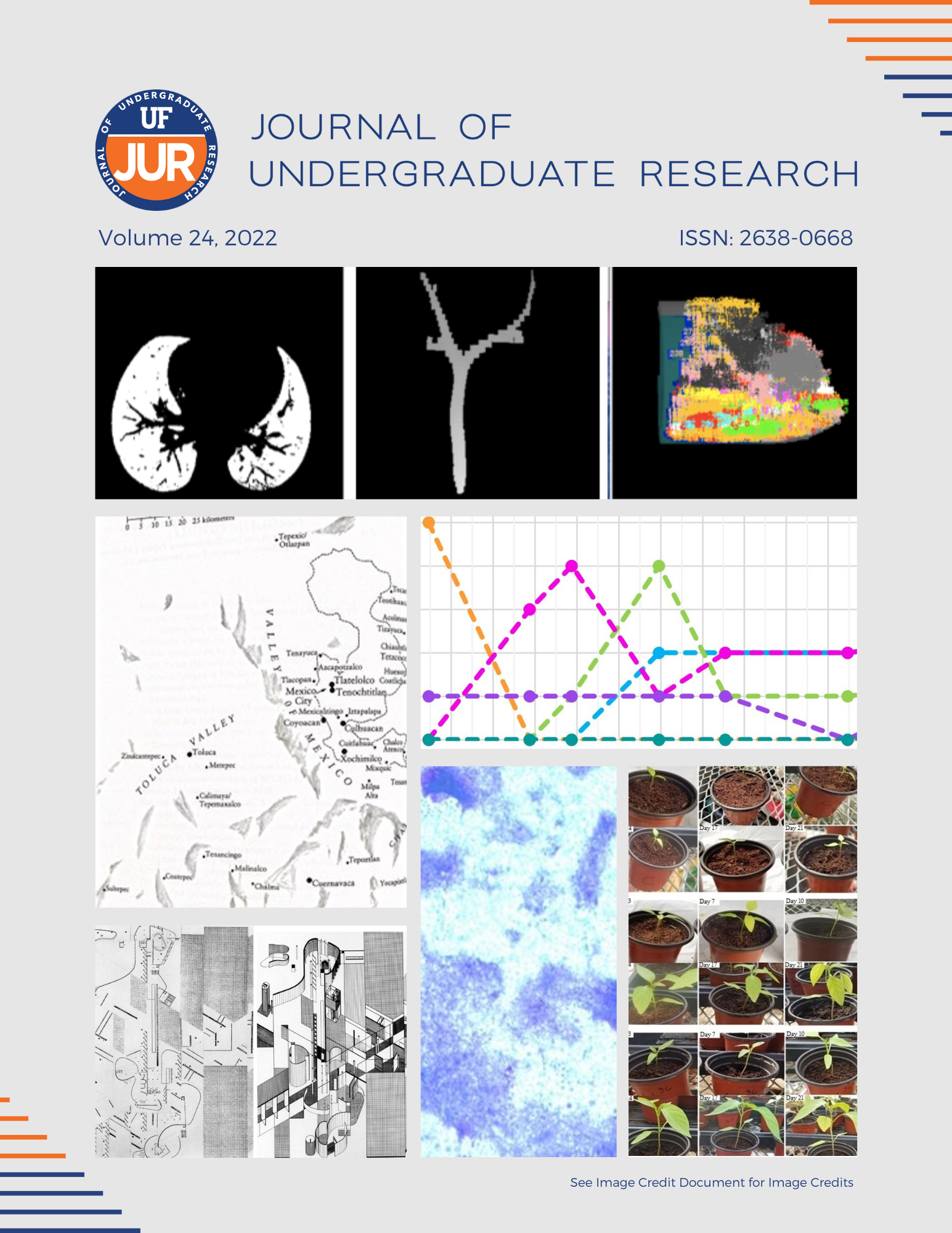Influence of Abiotic and Biotic Stressors on the Sensitivity Defenses of Mimosa striglliosa
DOI:
https://doi.org/10.32473/ufjur.24.130816Keywords:
thigmonasty, plant defenses, abiotic stress, biotic stressAbstract
In plants, chemical and mechanical traits are involved in the defense against environmental stressors. In the case of Mimosa plants, touch-sensitive responses through leaf-closure provide a unique form of mechanical defense. While past research has shown that the impacts of stressors such as competition or short-term drought may cause the chemical defenses in plants to increase or decrease, it is unknown how the interaction of these stressors may influence the efficiency of touch-sensitive responses. In this study, we hypothesized that the touch-sensitive responses of Mimosa strigillosa would strongly differ from regularly watered individuals when subjected to short-term drought. Additionally, we hypothesized that competition would hinder the touch-sensitive response, particularly from competitors in closely related taxa. To test these hypotheses, an experimental design was performed with three competition groups of Mimosa. In each competition group, half of the individuals were subjected to drought conditions. Plants were then subjected to a tactile stimulus in a greenhouse environment, with the degree of leaf closure being measured as an estimate of recovery. Drought was found to be a significant factor of both the rate of change of leaf closure, and the degree of leaf closure.
Metrics
Downloads
Published
Issue
Section
License
Copyright (c) 2022 Rebecca Molina, Eduardo Calixto, Philip G Hahn

This work is licensed under a Creative Commons Attribution-NonCommercial 4.0 International License.
Some journals stipulate that submitted articles cannot be under consideration for publication or published in another journal. The student-author and mentor have the option of determining which journal the paper will be submitted to first. UF JUR accepts papers that have been published in other journals or might be published in the future. It is the responsibility of the student-author and mentor to determine whether another journal will accept a paper that has been published in UF JUR.

